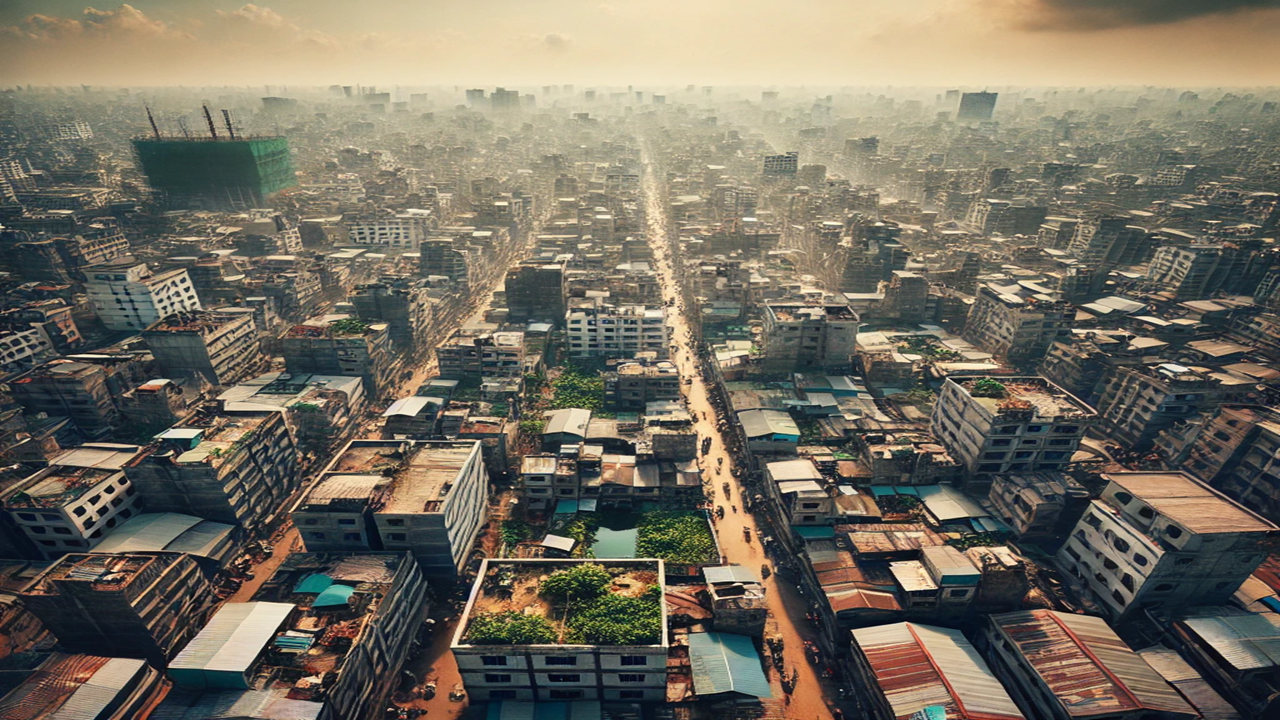Battling the Heat: Bangladesh’s Struggle with Rising Temperatures and Economic Fallout
Rising temperatures in Bangladesh are causing a public health and economic crisis, as detailed in the report "An Unsustainable Life," published by the World Bank Group. The country faces increased heat-related illnesses, declining labor productivity, and urban challenges. Urgent national and global actions are essential to combat these issues and build resilience.

Bangladesh is at the forefront of the climate crisis, as outlined in the recent report, "An Unsustainable Life: The Impact of Heat on Health and the Economy of Bangladesh" published by the World Bank Group. The document delves into the devastating effects of extreme heat on public health, labor productivity, and urban resilience, underscoring the urgent need for global and local action.
A Growing Health Crisis
As temperatures rise, Bangladesh’s population faces severe health consequences. The report highlights an alarming increase in heatwaves, which disproportionately impact vulnerable groups such as children, the elderly, and outdoor workers. Urban centers like Dhaka, plagued by poor planning and minimal green spaces, amplify these challenges, creating dangerous urban heat islands.
Heat-related illnesses—from cardiovascular issues to dehydration—are on the rise, stretching an already overburdened healthcare system. Hospitals struggle to cope with these cases, underscoring the dire need for stronger public health infrastructure and targeted interventions to protect at-risk populations.
Economic Losses and Labor Productivity
The economic repercussions of rising temperatures are staggering. Bangladesh, a nation heavily reliant on outdoor labor in sectors like agriculture and construction, is witnessing a sharp decline in worker productivity. High heat exposure not only endangers lives but also contributes to a reduction in GDP, threatening long-term economic stability.
Moreover, the healthcare costs associated with treating heat-related illnesses are straining the national budget. Without immediate action, the financial burden will continue to grow, exacerbating inequalities and hindering development efforts.
Urban and Environmental Challenges
Rapid urbanization and environmental degradation are compounding the heat crisis. Dhaka’s lack of green spaces and unplanned urban sprawl have intensified the effects of rising temperatures. The report calls attention to the urgent need for urban planning reforms, emphasizing solutions such as increasing vegetation cover and incorporating cooling infrastructure.
Environmental factors like deforestation further aggravate the situation, reducing natural resilience to heat. Addressing these issues requires a holistic approach, combining environmental restoration with sustainable urban development.
Climate Change and Future Risks
The report paints a grim picture of Bangladesh’s future if global temperatures continue to rise unchecked. Climate models predict a significant increase in heatwave days, posing unprecedented risks to public health, economic stability, and environmental sustainability.
Bangladesh’s plight also underscores the global dimension of the crisis. The report calls for international cooperation to reduce greenhouse gas emissions and support vulnerable nations through financial aid and technological assistance.
Pathways to Resilience
To combat the heat crisis, the report proposes a series of policy recommendations:
Cooling Solutions: Implementing innovative cooling technologies and increasing urban greenery to mitigate the heat.
Strengthened Healthcare: Enhancing healthcare systems to better manage heat-related illnesses and improve access to emergency services.
Worker Protections: Developing policies that safeguard outdoor laborers, such as adjusted working hours and heat-protective infrastructure.
Global Advocacy: Amplifying Bangladesh’s voice in international climate forums to secure funding and resources for climate adaptation.
The findings of "An Unsustainable Life" serve as a stark reminder of the interconnectedness of climate change, public health, and economic stability. Published by the World Bank Group, the report underscores that Bangladesh’s resilience depends on immediate action at both national and international levels. Addressing the heat crisis is not just a local necessity but a global responsibility to ensure a sustainable future for all.
- FIRST PUBLISHED IN:
- Devdiscourse
ALSO READ
Public Health Alert: The Complex Challenge of Obesity in India
Dr. Jitendra Singh Calls Obesity a National Public Health Priority at AOCO Inauguration
Tunisians Rise Against Pollution in Gabes: A Public Health Crisis Unfolds
Why Cutting Emissions Is One of the Strongest Public Health Tools in Europe Today
Air Pollution: A Rising Threat to Public Health and Economy










